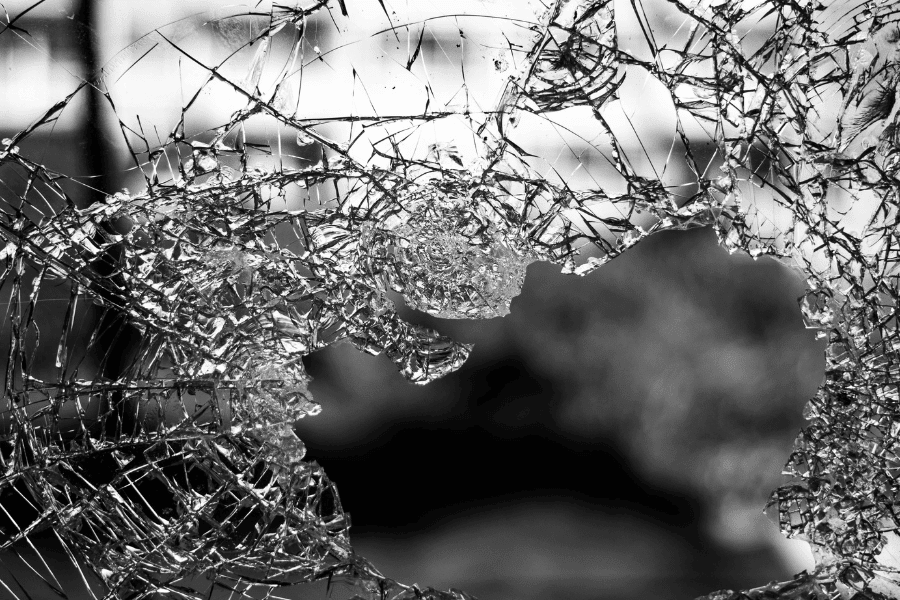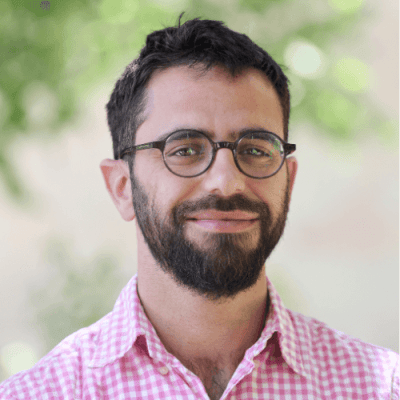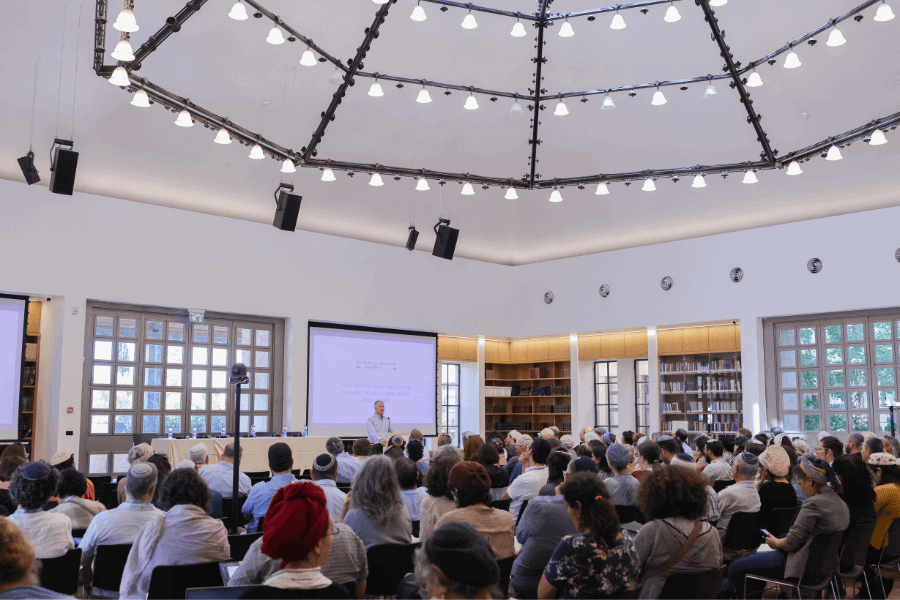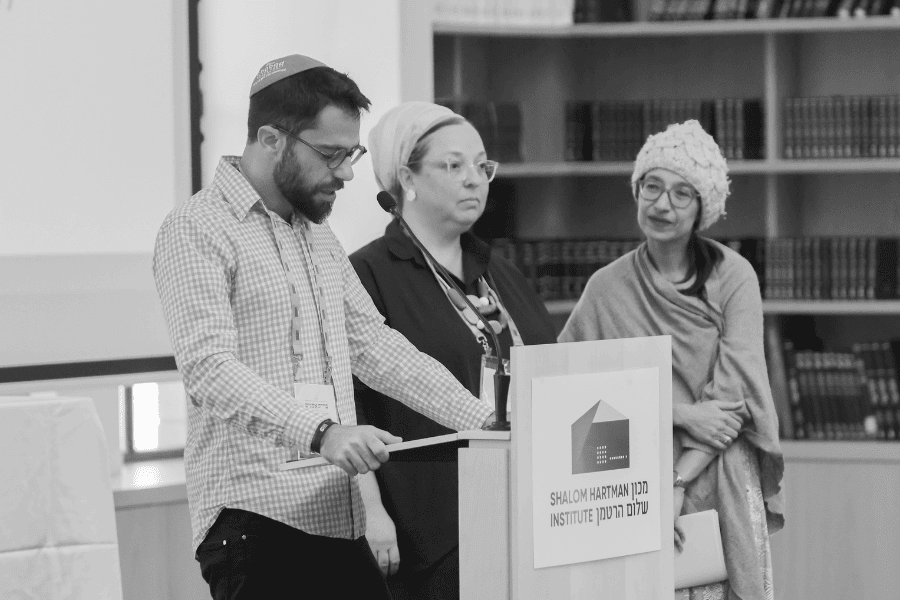בעצה אחת שמעון ולוי החליטו לקחת את הפגיעה של אחותם ולעשות בה כטוב בעיניהם. מהטקסט ניתן ללמוד כי הם התעלמו לחלוטין מדינה ומהשבר שלה והתרכזו בכאב הפרטי שלהם. הם לא חשבו אף לרגע אחד, לגשת אל דינה בדחילו ורחימו, לשבת מולה, להישיר אליה מבט ולהיות איתה שם בכאבה.
The English version follows the Hebrew version
אזהרת טריגר
Trigger Warning
התוכן שלפניך עשוי להיות קשה לקריאה ומעורר רגשות של עצב וכאב.
אפשר לבחור לדלג ואפשר לבחור לעצור באמצע הקריאה.
מומלץ להקשיב לעצמך בזמן הזה.
"וַיְהִי בַיּוֹם הַשְּׁלִישִׁי בִּהְיוֹתָם כֹּאֲבִים, וַיִּקְחוּ שְׁנֵי בְנֵי יַעֲקֹב שִׁמְעוֹן וְלֵוִי אֲחֵי דִינָה אִישׁ חַרְבּוֹ, וַיָּבֹאוּ עַל הָעִיר בֶּטַח וַיַּהַרְגוּ כָּל זָכָר. וְאֶת חֲמוֹר וְאֶת שְׁכֶם בְּנו הָרְגוּ לְפִי-חָרֶב; וַיִּקְחוּ אֶת דִּינָה מִבֵּית שְׁכֶם וַיֵּצֵאוּ. וַיֹּאמֶר יַעֲקֹב אֶל-שִׁמְעוֹן וְאֶל-לֵוִי, עֲכַרְתֶּם אֹתִי לְהַבְאִישֵׁנִי בְּיֹשֵׁב הָאָרֶץ בַּכְּנַעֲנִי וּבַפְּרִזִּי; וַאֲנִי מְתֵי מִסְפָּר, וְנֶאֶסְפוּ עָלַי וְהִכּוּנִי וְנִשְׁמַדְתִּי אֲנִי וּבֵיתִי. וַיֹּאמְרוּ: הַכְזוֹנָה, יַעֲשֶׂה אֶת-אֲחוֹתֵנו".
(בראשית ל"ד)
מעבר לעומקים אחרים הטמונים בו, 'מעשה דינה' הוא אחד מן הטקסטים הבודדים והמפורטים בתורה בנושא פגיעה מינית והשלכותיה. בעיניי, אחד מהאלמנטים החשובים בטקסט הזה הוא הפירוט של הכתוב במה שנעשה דווקא לאחר הפגיעה. התורה מפרטת לנו את המתרחש בקרב מעגלי הפגיעה השונים ואת הדרך הייחודית שלהם בהתמודדות עם הטראומה. יחד עם זאת, המיקוד והפירוט בהתרחשות הפוליטית באזור לאחר הפגיעה, כמו מדלג על דמות אחת שהופכת להיות שולית באירוע, הנפגעת עצמה – דינה. אם הטקסט מתמקד בה ובנעשה עימה עד לאירוע הפגיעה, הרי שלאחריו, היא הופכת לדמות שולית וחשובה פחות ונראה כמו שכל האירוע מדלג מעליה ומתמקד בשחקנים ממעגל הפגיעה השני.
מדרש בראשית רבה אומר על ההקדמה של יעקב לברכת/קללת שמעון ולוי בערוב ימיו "שִׁמְעוֹן וְלֵוִי אַחִים כְּלֵי חָמָס מְכֵרֹתֵיהֶם" וכלום אינן אחים? אלא אחים הן בעצה, נטלו הם עצה על שכם והרגום, שנאמר: "ויקחו שני בני יעקב שמעון ולוי איש חרבו" (בראשית לד כה). בעצה אחת שמעון ולוי החליטו לקחת את הפגיעה של אחותם ולעשות בה כטוב בעיניהם. מהטקסט ניתן ללמוד כי הם התעלמו לחלוטים מדינה ומהשבר שלה והתרכזו בכאב הפרטי שלהם. הם לא חשבו אף לרגע אחד, להיכנס אל דינה בדחילו ורחימו, לשבת מולה להישיר אליה מבט ולהיות איתה שם בכאבה. אולי אפילו להציע לה חיבוק, נחמה או שיקום. היה חשוב להם להנכיח את המחיר למעשה לאלו שפגעו בה ולבני משפחתם. ייתכן מאוד שמסע הנקמה שלהם הסב נחת לדינה, אך הדבר אינו מוזכר בכתובים.
גם אם נניח שדינה נוחמה במסע הנקמה של האחים, העובדה שהם לא היו אמפתיים לכאב שלה, והדגישו את כאבם שלהם, היא בלתי נסבלת ומנוגדת לאחד מן היסודות החשובים ביותר בהליך ההחלמה של הנפגע.ת שהוא האמפתיה הרדיקלית. היכולת של הנפגע.ת לחוש כי האדם שעומד מולו מסוגל להישיר אליו מבט ללא פחד ולהיות 'עד' חי למה שעבר עליו.
הספרות העוסקת בטראומה ובהתמודדות נפשית עם טראומה דנה בהרחבה בנושא העדות ובתפקידו החיוני של האחר כנושא עדות לטראומה שפעמים רבות הקורבן עצמו לא יכול היה להיות עד לה. בתגובה לכך, הטיפול הפסיכולוגי בנפגעי טראומה מאפשר רדיקלית, מרחב למתן עדות. אורית נווה וצביה זליגמן (2017) כותבות כי האירועים הטראומתיים אינם נזכרים כזכרונות רגילים. כשהם מתרחשים לא מתאפשר ויסות הרגשות או תהליכי ההתבוננות והתיעוד הרגילים. לעיתים קרובות אותם אירועים מתוארים ככאלו שמתרחשים בזמן אחר, במימד אחר, או שקרו לאדם אחר. עובדה זו משמרת את הזיכרון הטראומטי עצמו קפוא וחסר זמן והופכת את התנועה הנפשית כולה לאוטומטית, חסרת מטרה ונטולת פשר.
לכן, עצם ההקשבה של המטפל לעדות המטופל, מאפשרת למטופל קבלת תיקוף והכרה לחוויה שלו. תוך מתן העדות, המטופל נתקל באמון מלא בדברים כפי שהיו. הוא מקבל הזדמנות להתבונן בהתרחשות במרחב בטוח, עם אדם שמאמין לו בלי פקפוק. עם הזמן הוא מסוגל להתחבר לחוויה עצמה, עד אשר היא נעשית חלק אינטגרטיבי משאר האני שלו.
בשעה ששמעון ולוי לא הישירו מבט אמפתי ועדותי אל אחותם, בזאת הם פספסו את הקניית יכולת הריפוי לאחותם. ואולי בשל כך כעס עליהם יעקב ולא בירך אותם כשאר האחים טרם מותו. אם נתבונן בכתוב מעט לאחור, נראה שכאשר חצה יעקב את מעבר יבוק, לקראת המפגש המאיים עם אחיו עשיו, הוא דאג לקראת הקרב להעביר אל מעבר לנהר את משפחתו. כמו שאומר הכתוב "את נשיו ואת אחד עשר ילדיו" (בראשית, ל"ב, 23). דינה, שלפי כל החישובים כבר נולדה, אינה נספרת כאן. הדבר עורר את בעלי המדרש לתהות, "ודינה היכן הייתה?" ולהשיב: "נתנה (יעקב) בתיבה ונעל בפני הרשע הזה (עשיו), כדי שלא יתלה עיניו בה וייקח אותה" (בראשית רבה פרשה ע"ו, ט;). כלומר, ניתן לומר שיעקב (כמו אבותיו כאשר נכנסו למצרים) היה ער לכך שעלולה להתרחש פגיעה והשתדל למנוע אותה מראש. מהמדרש הזה ניתן ללמוד על יעקב שהיה מודע לפגיעה מינית ולהשלכותיה ואולי בשל כך הוא כעס על בניו שעשו דין לעצמם ולא התחשבו באחותם הסובלת.
הדבר מתחבר היטב לימנו אנו. בשעה שאנו יודעים שמעשי הטבח הנורא של השביעי באוקטובר, לוו במעשים חמורים ומחרידים של פגיעה מינית באחינו ואחיותינו בית ישראל. המקרים המחרידים הללו אולי נבלעו כאשר עם ישראל והעולם נוכח לדעת את גודל הזוועה הנוראה. אך התפקיד החשוב שלנו בימים אלו, הוא לזכור ולראות את אשר התרחש באותו יום נורא. להיות עדים אמיתיים למצוקה של אלו שחוו את הפגיעה הנוראה הזו. זה הזמן בו קהילות ישראל צריכות להעלות גם את הפגיעה הנוראה הזו ולדבר עליה בפומבי. התפקיד העדותי של כל אחת ואחד מאיתנו, בהקשר של הפגיעה המינית ההמונית שהתרחשה ביום הטבח, עשוי לסייע להליך הריפוי האישי של הניצולים כמו גם בהליך הריפוי הלאומי. שהרי את הדין למעשים אלו ייתן מי שצריך לתת ואל לנו להיות כשמעון ולוי. התיקון שיש בידנו להציע הוא להישיר מבט אל שהתרחש באותו יום נורא, ולומר בקול גדול שאנו עדים נאמנים שישאו את האירוע הנורא הזה על לוח ליבם.

תכנים נוספים על ״שבוע דינה״:
רוצה לקבל עדכונים ממגזין גלויה?
הפרטים שלך ישארו כמוסים וישמשו רק למשלוח אגרת עדכון מהמגזין מפעם לפעם
קווי החירום לנפגעות ולנפגעי תקיפה מינית
שאלון זיהוי למצבי סיכון
שאלון אנונימי של משרד הרווחה שנכתב עם מומחים לטיפול
כדי לזהות את מצבך או את מצב הסיכון של בן או בת משפחה ובסביבתך הקרובה.
And Dinah Went Out: Seeing and Sharing Her Pain | Tzviki Fleishman
Shimon and Levi decided together to observe their sister's assault and do with it as they saw fit. The text reveals that they completely disregarded Dinah and her crisis, focusing instead on their private pain. They did not think, even for a moment, to approach Dinah with trepidation and compassion, to sit opposite her, look her in the eye and be with her in her pain.
Trigger Warning
The content here may be difficult to read and may evoke feelings of sadness and pain.
You can choose to skip it or to stop reading in the middle.
Try to listen to yourself at this time.
On the third day, when they were in pain, Shimon and Levi, two of Jacob’s sons, brothers of Dinah, took each his sword, came upon the city unmolested, and slew all the males. They put Hamor and his son Shechem to the sword, took Dinah out of Shechem’s house, and went away. The other sons of Jacob came upon the slain and plundered the town, because their sister had been defiled. They seized their flocks and herds and asses, all that was inside the town and outside; all their wealth, all their children, and their wives, all that was in the houses, they took as captives and booty. Jacob said to Shimon and Levi, "You have brought trouble on me, making me odious among the inhabitants of the land, the Canaanites and the Perizzites; my fighters are few in number, so that if they unite against me and attack me, I and my house will be destroyed". But they answered, “Should our sister be treated like a whore?”
(Breishit 34)
Beyond other levels of the story, the "Deed of Dinah" is one of the few and most detailed texts in the Torah on the issue of sexual assault and its ramifications. In my eyes, one of the important elements of this text is actually the description of what happened after the assault. The Torah describes in detail the events among the different circles of those affected and their unique way of coping with the trauma. Nonetheless, the focus on the details of the political events in the area following the assault seemingly skips over one character who becomes marginal to the entire incident, the victim herself – Dinah. If the text focuses on her and what happens to her until the assault, thereafter she becomes a marginal and less important character with the entire event seemingly passing her by, focusing instead on the characters in the secondary circle of victims.
Midrash Breishit Rabba comments on the introduction to Yaakov's blessing/curse given to Shimon and Levi on his deathbed: "'Shimon and Levi are brothers; their weapons are tools of lawlessness'. Aren't they all brothers? But rather, they are brothers of the same mind, deciding together to kill Shechem as is written 'Shimon and Levi, two of Jacob’s sons, brothers of Dinah, took each his sword'" (Breishit 34:25). Shimon and Levi decided together to observe their sister's assault and do with it as they saw fit. The text reveals that they completely disregarded Dinah and her crisis, focusing instead on their private pain. They did not think, even for a moment, to approach Dinah with trepidation and compassion, to sit opposite her, look her in the eye and be with her in her pain, maybe even offer a hug, consolation or an avenue to rehabilitation. It was important for them to manifest the price for this deed to those who harmed her and their family. It is quite conceivable that their campaign of vengeance caused Dinah some satisfaction but of this the text makes no mention.
Even if we assume that Dinah was consoled by the vengeance wrought by Shimon and Levi, the fact that they were not empathetic to her pain, but rather stressed their own, is intolerable and opposed to one of the most important elements in a victim's healing process – radical empathy. The victim's ability to feel that the person standing opposite them can look them in the eye without fear and be a living "witness" to what they went through.
The literature addressing trauma and the ordeal of coping with it emotionally delves into the issue of testimony and the critical role of others as bearers of testimony to the trauma, a task of which the victims themselves are frequently incapable. In response, trauma victims' psychological therapy radically facilitates a space for bearing witness. Orit Naveh and Tzvia Zeligman (2017) write that traumatic events are not remembered as regular memories and they do not allow for normal regulation of emotion or observation and corroboration processes. These events are frequently described as having happened at another time, in another dimension, or having happened to someone else. This situation preserves the traumatic memory itself as frozen and timeless and renders the entire mental process automatic, pointless, and meaningless.
Consequently, the very process in which a therapist listens to the victim's testimony enables them to receive validation and recognition of their experience. While providing testimony, the victim is met with full belief of things the way they were. They receive an opportunity to look at what happened in a safe environment, with someone who believes them unreservedly. With time, they are able to connect to the experience itself, until it becomes an integral part of the rest of their self.
When Shimon and Levi failed to look at their sister with empathy and a willingness to bear her testimony, they missed the opportunity to provide her with the ability to heal. This is perhaps the reason for Yaakov's anger towards them when deciding not to bless them like the other brothers prior to his death. If we examine the text somewhat before this, we see that when Yaakov crossed Ma'avar Yabok ahead of the threatening meeting with his brother Esav, he took care to move his family over the river before the battle. As the text says: "his wives and his eleven children" (Breishit, 32:23). Dinah, who by all calculations had already been born, is not counted here, an omission that led the Ba'alei Hamidrash to wonder "And where was Dinah?", answering that "He (Yaakov) put her in a box and locked it so that this evil man (Esav) would not cast his eyes on her and take her" (Breishit Rabba 76, 9). In other words, it can be said that Yaakov (like his father and grandfather when they entered Egypt) was aware of the possibility of assault and made every effort to prevent it. This midrash implies that Yaakov was aware of sexual assault and its ramifications and, consequently, was perhaps angry with his sons for taking things into their own hands while disregarding their suffering sister.
This resonates strongly today, when we know that the terrible atrocities of October 7 were accompanied by extreme and horrific acts of sexual assault against our fellow citizens. These shocking events have perhaps been overshadowed by what Israel and the world have since come to know about the scale of the terrible atrocities, however our important role today is to remember to see what happened that terrible day, to be genuine witnesses to the distress of those who experienced that traumatic assault. This is the time at which Jewish communities also need to raise this issue and talk about it publicly. The testimonial role of each of us in the context of the mass sexual attack that took place on the day of the massacre, can help the survivors' personal healing process as well as the national process of recovery. After all, those responsible will be brought to justice and we must not imitate Shimon and Levi. The tikkun we can offer is to look honestly at what happened that terrible day and proclaim that we will be faithful witnesses, bearing that traumatic event in our hearts forever.
תכנים נוספים על ״שבוע דינה״:
רוצה לקבל עדכונים ממגזין גלויה?
הפרטים שלך ישארו כמוסים וישמשו רק למשלוח אגרת עדכון מהמגזין מפעם לפעם



